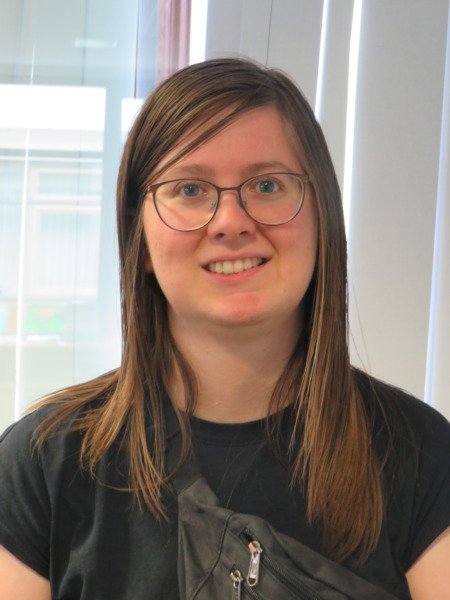Stay at EEGA: April – July 2023
The Leibniz ScienceCampus EEGA was able to welcome Rebekah Manlove, its first intern in funding phase II. In the following, she shares a few impressions of her internship.
Stay at EEGA: April – July 2023
The Leibniz ScienceCampus EEGA was able to welcome Rebekah Manlove, its first intern in funding phase II. In the following, she shares a few impressions of her internship.

I study Southeast European Studies at the University of Jena. My main focus is on the (post-)Yugoslav region and its neighbours, with the region’s history and linguistic diversity being my most prominent interests.
On the search for a compulsory internship, I found EEGA. Multiple factors drew me to EEGA: First, my interest in Eastern Europe. Second, a curiosity for the work of a researcher, and third, my deep bond with the Halle/Leipzig area. Since I grew up in Leipzig and frequently visit Halle, the idea to spend time in both of these towns and visit different EEGA member institutions seemed quite intriguing to me.
Thus in the span of my six week internship, I visited not only the Leibniz-Institut für Länderkunde (IfL) in Leipzig, where the EEGA office is situated, but also the Leibniz Institute for the History and Culture of Eastern Europe (GWZO), the Max Planck Institute for Social Anthropology and the Leibniz Institute of Agricultural Development in Transition Economies (IAMO) in Halle, as well as the Institute of Geography at the University of Jena. In each Institution, the people working there warmly welcomed me.
The tasks during my internship varied from day to day. I got to attend some very interesting events, among them a Conference on the Warsaw Ghetto Uprising (17-19 April 2023) and a workshop on publishing in scientific journals for young scholars organized at the GWZO (13 July 2023). At the latter institution, I also took care of the conference technology during a workshop on “Constructing and (Re)Presenting Cultural Heritage: Imperial, National, and International Constellations in Eastern Europe” ( 4-5 May 2023). I also completed a variety of tasks for different researchers, looking into a variety of topics, and compiling data. The internship gave me a good insight into the daily work at research institutions.
However, the most valuable insights came from conversations with the people working at all these institutions. For me as a student of the humanities, it was very encouraging to hear how differently careers develop over time. Many people have offered me tips and advice for my future, which I am very grateful for. Overall, I had a good time at the EEGA and hope to continue my career in the field of East European Studies.